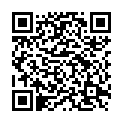|
|
|
| Module code: KI875 |
|
2V (2 hours per week) |
|
3 |
| Semester: 1 |
| Mandatory course: no |
Language of instruction:
German |
Assessment:
180-minute written exam
[updated 08.05.2008]
|
KI875 Computer Science and Communication Systems, Master, ASPO 01.04.2016
, semester 1, optional course
PIM-WN20 Applied Informatics, Master, ASPO 01.10.2011
, semester 2, optional course
Suitable for exchange students (learning agreement)
|
30 class hours (= 22.5 clock hours) over a 15-week period.
The total student study time is 90 hours (equivalent to 3 ECTS credits).
There are therefore 67.5 hours available for class preparation and follow-up work and exam preparation.
|
Recommended prerequisites (modules):
None.
|
Recommended as prerequisite for:
|
Module coordinator:
Prof. Dr. Horst Wieker |
Lecturer:
Prof. Dr. Horst Wieker
Dipl.-Ing. Jens Constroffer
[updated 01.04.2003]
|
Learning outcomes:
Modern telecommunications has become a strategic factor for modern companies and is one of the fastest growing markets today. Modern call-centre applications exploit the full range of options offered by telecom networks. The telecommunications applications are supported by so-called intelligent networks (INs). IN platforms are used to incorporate new complex services into the telecom network. IN platforms are now being used not only in mobile and fixed network applications, but also in the internet. IN applications are network-independent. A major benefit of intelligent networks is that they have been completely specified by the ITU. Students will be taught about the architecture and operation of intelligent networks. This will involve redefining the term ‘service’ and learning how to describe service implementation in terms of processes.
[updated 08.05.2008]
|
Module content:
1. What is an intelligent network?
2. The IN concept
3. User interfaces
4. Architecture model
5. Signalling protocols in INs
6. Platforms and tools
7. SSP, SCP, SMP, SRP, Service Node
8. IN services
9. Number translation, routing, VPN, mass calling, calling card
[updated 08.05.2008]
|
Recommended or required reading:
SIGMUND G., Intelligente Netze
[updated 02.07.2007]
|
Module offered in:
WS 2006/07,
WS 2005/06,
WS 2004/05
|


